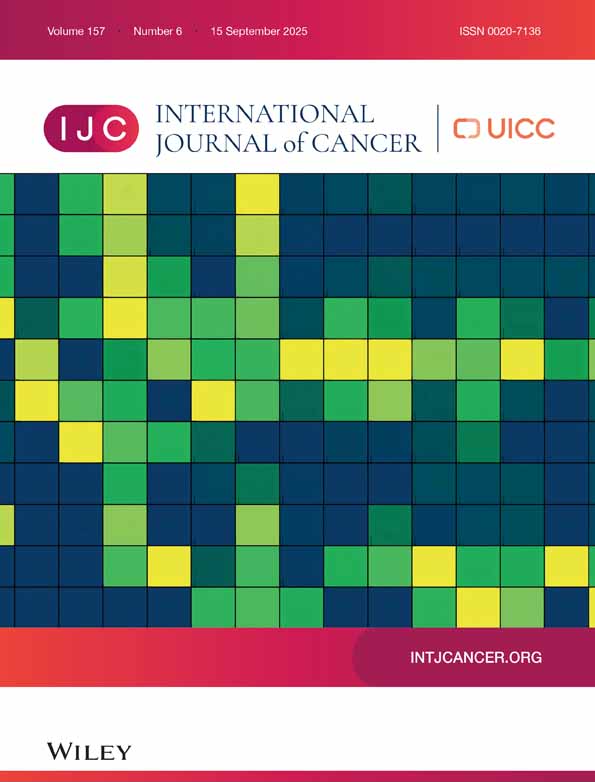Expression of tumor-associated 90k-antigen in human breast cancer: No correlation with prognosis and response to first-line therapy with tamoxifen
Abstract
It has been shown that a 90-kDa protein (90K), with an as yet unknown function, is expressed in the majority of human breast-cancer tissues. In addition, the serum level of this 90K antigen is elevated in a certain proportion of breast-cancer patients, and high serum levels are associated with a poor overall survival. It was therefore of interest to determine whether levels of 90K in tumor tissues could be used as a prognostic variable in breast cancer. In the present study, the levels of 90K in primary breast tumor cytosols were studied with respect to the length of relapse-free or overall survival in 547 patients (median follow-up, 81.4 months), and the relationship with response to first-line tamoxifen therapy and the length of progression-free survival in 184 patients with recurrent disease (median follow-up, 59.8 months). 90K levels in tumor cytosols were determined with an immunoradiometric assay. The cytosolic contents of 90K were not significantly correlated with age, menopausal status, tumor size, nodal status or differentiation grade. On the other hand, the levels of 90K were positively correlated with those of cytosolic estrogen receptor, progesterone receptor, urokinase-type plasminogen activator, its inhibitor PAI-I, cathepsin D and PS2. The cytosolic tumor level of 90K was not associated with the rate of relapse or death in primary breast cancer, nor with response to first-line therapy with tamoxifen or the length of progression-free survival in recurrent disease. © 1995 Wiley-Liss, Inc.




